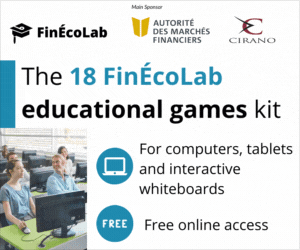
Early childhood education plays a critical role in children's development, which is reflected in decades of research. Planned investments by Canadian governments, in partnership with the provinces, of more than $8.4 billion over the next five years, will include working toward universal access to $10-a-day childcare.
This emphasis of ECE's importance created an influx of growth and demand in the sector but education has failed to keep up, creating gaps and highlighting the need for valuable leadership training.
In hopes of addressing that gap, Kathleen Manion, program head of RRU's Graduate Certificate in Transforming Child Protection to Wellbeing and Elizabeth Childs, professor and program head of Master of Arts in Learning and Technology, are conducting research on what is needed academically to support ECE leaders.
As an initial product of their research, ECE Leadership: Leading and Innovating in the Early Childhood Education Sector, they created an open educational resource in partnership with practicing early childhood educators, teachers of ECE practitioners, and involvement from Early Childhood Educators of BC and other interested groups.
Heartfelt leadership
The themes that emerged from their conversations with ECE leaders formed the basis of the OER. Participants shared gaps in learning around business skills, budgeting, human resources, stakeholder relationships and normalizing the idea of leadership in childcare spaces, shared Manion and Childs.
"You go to school to look after children and suddenly you're in charge of hiring and firing, and dealing with parental concerns, and health and safety and accounting," says Manion, noting that education around those business skills needs to be done "in a heartfelt way" because the core of the work is caring for and supporting children.
The tool is Creative Commons-licensed, which means that not only is it public and freely accessible, but it can also be remixed or repurposed by others with attribution. Designed to be equivalent to a post-secondary level non-credit course, and to be completed within 20 hours, it's interactive and draws on case studies, quizzes, audio, videos, readings and other activities, and includes inspiration, tips and strategies from ECE leaders as well as a printable workbook.
Childcare anywhere
Their broader research project was funded by an Early Childhood Professional Learning Fund grant from BC Campus, and focuses on creating a better understanding of key ECE leadership priorities and areas for innovation.
"One of the things we want to be able to do with the ECE leaders' program is to help early childhood educators see the possibilities ECE doesn't just have to be in a building or in a home, it can be in the parks, it can be on the land," says Childs.
In addition to their ongoing research, Manion and Childs are working with ECEBC to arrange a second round of feedback to edit and revise the open educational resource and share it more broadly. They're also looking into the possibility of evolving it into a graduate certificate or similar resource with academic recognition.













